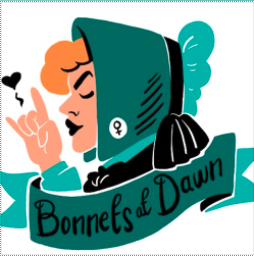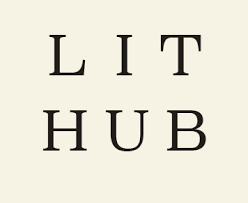The Best Reason to Major in English
We want our students to love reading and give them the tools we think will best help them develop that appreciation. But when it comes to our criticism, and what we say about the English major in print, we shy away from such naked affirmation. Love just isn’t cool—it’s warm and fuzzy and risks seeming like a “guilty pleasure,” what Arielle Zibrak has explained is something that we see as unproductive, and usually feminine. Although Roland Barthes’ classic The Pleasure of the Text and, more recently, Rita Felski’s work on attachment, argue that we should attend to the love readers feel for texts, for the most part we confine love to the classroom.
15 Fantastic Feminist Romance Novels
Feminist literary critics have also looked at how romance can talk about the complexities of feminist issues within their story framework. Avidly Reads Guilty Pleasures by Arielle Zibrak understands the ways romance novels are a source of feminine media culture some associate with shame and censure, reflecting that the Western world often diminishes feminine interests and pursuits. All that is to say, romances have been praised for centering feminist interests and issues like love, job security, equal partnership, and reproductive rights.
Go Ahead, Judge This Book by Its Cover. There’s Nothing Inside.
Arielle Zibrak, an English professor at the University of Wyoming, compared today’s use of fake books to their presence in the fiction of the Gilded Age, where they typically symbolized “the spiritual and intellectual poverty associated with empty consumption and material excess.”
“Novelists like Edith Wharton depict the new money families of the Gilded Age, those whose fortunes came from industry rather than land holdings, experiencing an astronomical rise in wealth outpaced by their ability to understand or consume art and culture,” said Ms. Zibrak. “In these novels, buying fake or purely decorative books is aligned with having poor taste in art or an ignorance of social custom.”
Quiz: Design Your Dream Vacation and Get a Vacation Book Recommendation
AVIDLY READS GUILTY PLEASURES BY ARIELLE ZIBRAK
This literary nonfiction essay book questions what it means to love romance and other supposedly lowbrow, guilty, or trashy feminine fictions. She unpacks her feelings of growing up with feminine shame by looking at what makes something a guilty pleasure and how those works are looked at by society at large. It’s a fun, funny, and well-informed look at romance for anyone looking for a bite-sized bit of cultural criticism.
Wondrium Pilots: Edith Wharton’s Gilded Age New York
Join Dr. Arielle Zibrak, Associate Professor of English at the University of Wyoming, to take a deep dive into who Edith Wharton was and how she came to be such a popular and well-regarded novelist. You’ll see the New York of Wharton’s time: a place of extremes between wealth and poverty, success and misfortune, hopeful optimism and bitter realities. You’ll gain an appreciation of the complex history of New York’s Gilded Age and Wharton’s relationship to its culture as both a participant and a critic.
Read. Return. Repeat. Podcast for Wichita Public Library
Opening Season 3 of the podcast, co-hosts Sara Dixon and Daniel Pewewardy talk with Arielle Zibrak, Associate Professor of English and Gender & Women's Studies at the University of Wyoming to discuss the topic of Category 4: Guilty Pleasures. Zibrak, who is also author of the book Avidly Reads: Guilty Pleasures, discusses the concept of shame and media consumption and why we should never feel bad about the things we love.
Guilty Pleasures by Arielle Zibrak (review)
Guilty Pleasures brilliantly thematizes and embodies the need to revise the rigid boundaries of scholarly conversation. Hailing from the author's reflection on her own culture of reading femme fictions as a rite of passage into a world of "guilty pleasures"—such as romance novels, romantic comedies, and popular, female-centered television shows—Guilty Pleasures deftly weaves the nineteenth century with gender studies, cultural critique, and affect theory. With a candid, conversational style, the book bridges academic and popular writing in a way that engages the reader to do the same, broaching such important questions as the nature of pleasure, the experience of guilt, and structures of love, sex, and gender. In what follows, Sarah Danielle Allison (Loyola University), Rita Dashwood (Edge Hill University), and Melissa Gniadek (University of Toronto) join author Arielle Zibrak (University of Wyoming) in an incisive discussion of Guilty Pleasures
Bloomsbury Object Lessons: Perfume Book Launch
Megan Volpert and an eclectic foursome of erica lewis, Kate Leland, Matt Morris, and Arielle Zibrak read from and respond to PERFUME.
SSAWW Reads Event with Jennifer Putzi and Claudia Stokes
The Society for the Study of American Women Writers announces the inaugural event in our series SSAWW Reads: Chats with Authors about Their New Books, featuring Jennifer Putzi and Claudia Stokes talking with Arielle Zibrak about two new titles, focusing on what they can tell us about 19th century women writers.
For decades, critics have insisted that great writers are original, independent, and trail-blazing. But are they? Join Jennifer Putzi and Claudia Stokes in conversation with Arielle Zibrak as they reevaluate this idea and discuss their new books about the importance of convention, imitation, homage, and tradition in nineteenth-century American literature.
Jennifer Putzi, Professor of English and Gender, Sexuality, & Women's Studies at William & Mary, has written or edited five books. She is currently working on an edition of the 1868 diary of Frances Rollin Whipper. She’ll be discussing Fair Copy: Relational Poetics and Antebellum American Women's Poetry (2021).
Claudia Stokes, Professor of English at Trinity U. in San Antonio, is the author of The Altar at Home: Sentimental Literature and Nineteenth-Century American and other works. She and Elizabeth Duquette co-edited Elizabeth Stuart Phelps's The Gates Ajar. She is currently editing Harriet Beecher Stowe's religious writings. She’ll be discussing Old Style: Unoriginality and Its Uses in Nineteenth-Century U.S. Literature (2021).
UW professor’s book exploring ‘guilty pleasures’ lands on international magazine’s annual top-20 list
CASPER, Wyo. — A University of Wyoming English associate professor’s latest book of cultural criticism has landed on the international online magazine PopMatters’ 20 Best Books of 2021, the university announced Monday.
Arielle Zibrak’s book “Guilty Pleasures,” written for both academic and public audiences, explores how the shame associated with lowbrow media and literature is “a particularly femme phenomenon.”
THE BEST BOOKS OF 2021
As is PopMatters‘ ethos throughout our 22 years of publishing, there’s a strong current of feminism electrifying our picks for the Best Books of 2021.
This book is for people who wouldn’t dare change the channel if there’s an episode of Susan Harris’ The Golden Girls on. It’s for people who regularly cite the “big mistake, huge” scene in Marshall’s 1990 film, Pretty Woman, to convey their dissatisfactions. Zibrak is writing for people who have had a compact disc of the Romy and Michelle’s High School Reunion (Mirkin, 1997) soundtrack ready for spinning in their car at top volume in any emotional emergency. – Read Megan Volpert’s full review here.
Bonnets at Dawn Podcast Episode
Austen vs. Brontë is a literary thunderdome! Listen each week as Lauren and Hannah compare and contrast the lives, work and fandoms of the Jane Austen and the Brontë sisters. We’re wrapping up our mini-series on Sex, Scandal, and Social Climbers with Dr. Arielle Zibrak, who is here to discuss the role of bonnets in 19th century literature, bodice rippers, and guilty pleasures. We also carry on our discussion about race in literature, Taylor Swift, and even get into Jane Austen’s Emma and Keanu Reeves.
Pleasure and Compromise: Feminists Read Culture with Arielle Zibrak and Rachel Greenwald Smith
Join four feminist critics in conversation about how they love, hate, and compromise with the culture around us. In an imperfect cultural world, what compromises do we make to honor pleasure? How do the things that give us pleasure compromise our politics—or is it the other way around? Can our compromises, and the sometimes-guilty frisson of making them, become themselves pleasurable? Such questions percolate through two new books: Arielle Zibrak’s Avidly Reads Guilty Pleasures and Rachel Greenwald Smith’s On Compromise: Art, Politics, and the Fate of an American Ideal. Potential conversational objects of guilt, compromise, and pleasure include but are not limited to: Axl Rose, “Unchained Melody,” seduction plots, white wine spritzers, Edith Wharton novels, Nancy Meyers movies, 4chan, Taylor Swift, fast food, Doc Martens, Judy Blume, online shopping, Poetry magazine, coalitional politics, and the feminist possibilities of “sing-alongs.”
Shelf Love Podcast Episode
Despite Tina Turner's claim that love is "but a second-hand emotion," human beings sure do seem obsessed with the pursuit of romantic love - so much so that we dedicate a lot of our storytelling power to exploring it.
Shelf Love explores fictional narratives of romantic love through podcast/written discussions with experts and original research collecting real stories and data from the consumers to understand how these narratives impact us.
Arielle joins me to explore just some of the thought-provoking arguments made in her book and coach me on letting myself enjoy imperfect media. It's not a book about romance novels (although they're discussed), but the topic is highly relevant for any media that is coded as "femme," especially stories about love.
Smart Podcast / Trashy Books Episode
Arielle Zibrak is the author of Guilty Pleasures, a new book in the Avidly Reads series from New York University Press. She’s also a former editor of romance fiction, and a professor of 19th century popular fiction. Her new book – which is terrific – examines the concept of the “guilty pleasures” and seeks to unpack and answer the question, “What is it about ribald romance novels, luxurious interior design, and frothy wedding dresses that often make women feel their desires come with a shadow of shame?”
This is one of those conversations that made my brain go all jiffy pop with bunches of ideas. I hope you enjoy it as well!
You can find Avidly Reads: Guilty Pleasures wherever you get your books, and I’ve got links in the show notes, too.
Academic Affects: A Conversation on Guilty Pleasures
In honor of Zibrak’s book, this conversation brings together three scholars — working in different fields and at different kinds of institutions, with different intellectual formations — to think about the status of “guilty pleasures” in the world of academia now.
The Concept of the Guilty Pleasure Privileges Productivity Above All Else
Excerpt from Guilty Pleasures
Brunch, Ladies? On Arielle Zibrak’s Guilty Pleasures
Arielle Zibrak’s Guilty Pleasures is such a fun and fast conversation that reading it feels like having brunch with a hilarious dear friend.
ALH Online Review, Series XXIV 1 Edith Wharton’s The Age of Innocence: New Centenary Essays, ed. Arielle Zibrak
Reviewed by Sheila Liming, Champlain College
Even as it marks the 100th anniversary of Edith Wharton’s The Age of Innocence, this volume reckons with three centuries all at once: the nineteenth, in which Wharton’s novel takes place; the twentieth, in which it was published; and the twenty-first, in which the volume’s contributors find themselves positioned. Arielle Zibrak builds a convincing case for this collusion of eras in her introduction. Wharton’s novel, Zibrak contends, “asks us to see the future through a re-examination of the past” (16). This statement sets the tone for the essays that follow, all of which cast the present moment as a kind of critical scaffolding that supports and displays new, extended insights about Wharton’s most celebrated literary work.
100 Years of Innocence: Wharton scholars Arielle Zibrak and Sarah Blackwood in conversation.
Moderated by The Mount's Public Programs Director Michelle Daly.





















